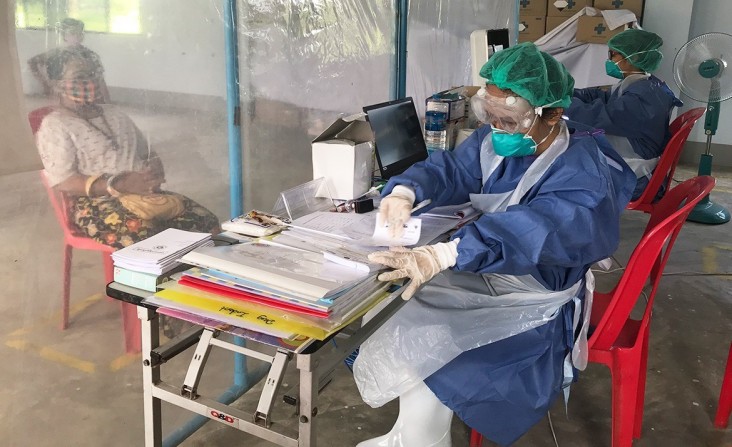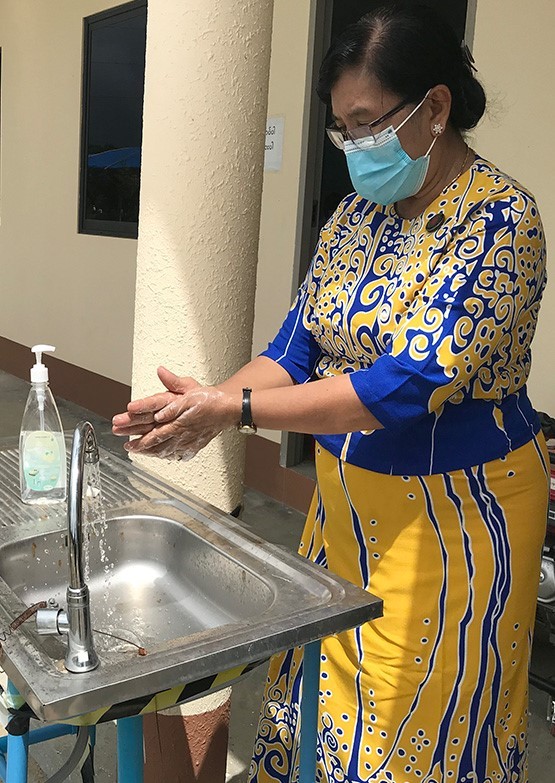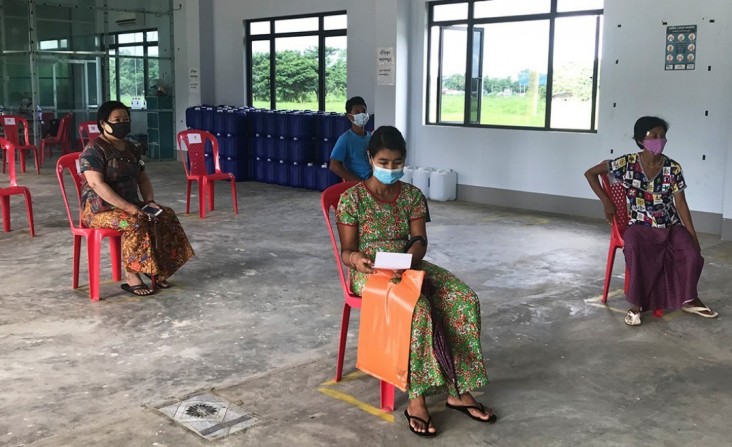- What We Do
- Agriculture and Food Security
- Democracy, Human Rights and Governance
- Economic Growth and Trade
- Education
- Environment and Global Climate Change
- Gender Equality and Women's Empowerment
- Global Health
- Humanitarian Assistance
- Transformation at USAID
- Water and Sanitation
- Working in Crises and Conflict
- U.S. Global Development Lab
Speeches Shim

September 2020
According to an analysis by Burma’s National TB Program, there was a 40-percent decrease in the number of detected TB cases in April 2020 compared to last year. Due to COVID-19 movement restrictions, health services, including about 50 percent of General Practice clinics, had to slow down to almost a complete stop. TB mobile case-finding activities stopped, and people were also reluctant to go to the health facilities.
“The situation was worrisome,” said Dr. Than Than Htay, a project officer of the Myanmar Anti-TB Association, one of the implementing partners of the Access to Health TB project. “If we could no longer detect TB cases and provide treatment, the [spread of disease] will rise and become uncontrollable.”

To fill this health care and COVID-19 screening gap, the Ministry of Health and Sports started operating community fever clinics in different townships, where they not only provided primary care and screening for COVID-19, but also identified TB patients.
Yangon has the highest drug-susceptible (DS-TB) and drug-resistant TB (DR-TB) burden in Burma, accounting for 25 percent of DS-TB cases and 50 percent of DR-TB cases nationally. In order to continue essential TB services in Yangon, USAID supported TB case-finding services integrated into the fever clinics by using mobile X-Ray vans through USAID’s Access to Health project. In April, at the Insein Township Fever Clinic of Yangon Region, these efforts yielded 20 new TB cases during COVID-19 screenings.
Dr. Htay highlighted, “COVID-19 stopped our mobile TB clinics, but we grabbed the opportunity to link with these fever clinics and continue services to protect communities from TB.”


Comment
Make a general inquiry or suggest an improvement.